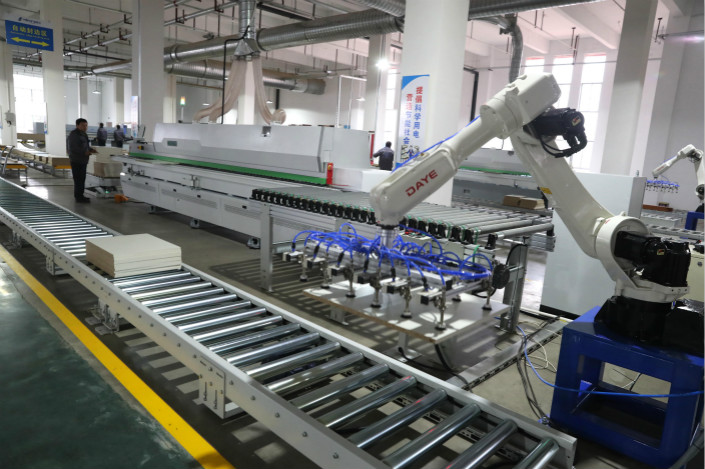New Economy Index Hits Four-Month Low in February

A private index that aims to gauge the size and changes in China’s new economy using big data edged further down in February, as its technology input suffered its first decline since November.
The Mastercard Caixin BBD China New Economy Index (NEI) fell to 29.8 in February from 31.3 the previous month, marking its lowest level since October. The latest reading showed that new economy industries accounted for 29.8% of total economic inputs used to make goods and services in February, continuing a downward trend for the second straight month. The index measures labor, capital and technology inputs in 10 emerging industries relative to those used by all industries.
The NEI, launched in March 2016, defines a “new economy” industry as one that is labor- and technology-intensive but has a relatively low ratio of fixed capital, and has sustainable and rapid growth. It also considers strategic new industries encouraged by the government.
The headline reading fell in February mainly on the back of a decline in the technology input subindex, which ended a two-month trend higher. The subindex and fell sharply to 29.7 in February from January’s 34.4. The subindex accounted for 25% of the NEI.
Meanwhile, the capital input subindex, accounting for 35% of the NEI, ticked to 31.7 in February from January’s 31.5, reversing a downward trend, according to the report compiled by Caixin Insight Group, Caixin Media’s financial data and analysis platform, and big-data research firm BBD. The labor input subindex, which has a weighting of 40% in the NEI, fell 1 point to 28.2.
The 10 industries included in the index are: energy conservation and environmental protection, new energy, new-energy vehicles, advanced materials, new information technology (IT) and information services, high-tech services and research and development, biotechnology, financial and legal services, advanced equipment manufacturing, and culture, sports and entertainment.
The new IT industry continued to be the biggest contributor of the 10 major industrial categories, accounting for 10.5 percentage points of the NEI’s reading last month, bouncing back from a record-low 7.6 percentage points in January. The energy conservation and environmental protection industry grew quickly in February, contributing 3.9 percentage points to the NEI headline number and ranking second.
The advanced equipment manufacturing industry suffered the biggest drop in the ranking, falling to seventh place last month from third in January, contributing only 1.9 percentage points to the headline figure.
The average monthly entry-level salary in new economy sectors, based on data compiled from online career and recruitment websites, rose 2.7% from January to 10,759 yuan ($1,693) in February, the highest since the launch of the index.
The new economy sectors provided less traction for country’s job market, as the data showed employment in the those industries dropped to 27.6% of total hiring in the economy in February, down from 28.5% in the previous month and 28.9% in December.
Contact reporter Pan Che (chepan@caixin.com)

- 1China Officials Dismiss Tax Hike Rumors After Tech Selloff
- 2Cover Story: How Gutter Oil Became a Prized Fuel for International Airlines
- 3Maersk Unit Takes Over CK Hutchison Panama Ports After Court Ruling
- 4Prominent Chinese Journalist Liu Hu Detained by Police in Chengdu
- 5China Provinces Set Cautious 2026 Growth Targets
- 1Power To The People: Pintec Serves A Booming Consumer Class
- 2Largest hotel group in Europe accepts UnionPay
- 3UnionPay mobile QuickPass debuts in Hong Kong
- 4UnionPay International launches premium catering privilege U Dining Collection
- 5UnionPay International’s U Plan has covered over 1600 stores overseas






